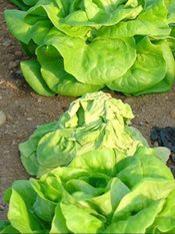
Chemical company BASF has completed a study using a protectant fungicide to reduce post-harvest losses in lettuce to improve marketable yields.
The protectant fungicide Signum has been shown to reduce post-harvest losses in iceberg lettuce and improve marketable yields, as well as protecting the crop from a number of key diseases including Sclerotinia, Rhizoctonia and Botrytis, according to BASF.
Simon Townsend, product stewardship manager for BASF, said: “Post-harvest losses in lettuce can be due to a variety of factors. Diseases such as Sclerotinia or Botrytis spoil the produce or create other undesirable symptoms such as pinkrib, discoloration or dehydration, leading to unacceptable quality for the retailers.
“In four trials in Spain, Signum has been proven to reduce the incidence of all these factors and so improve marketable yields.”
He explained that in these trials, iceberg lettuces were harvested and kept in a controlled cool atmosphere for seven days and then kept at ambient temperature for a further week.
After this, “the marketable yield of lettuce was 152 per cent compared with the standard treatment at 100 per cent which was cyprodinil and fludioxinil,” said Townsend.
“Growers have come to expect high levels of disease control from Signum and many have commented on the additional positive effects this product has on quality, yield and shelf-life characteristics,” he said.